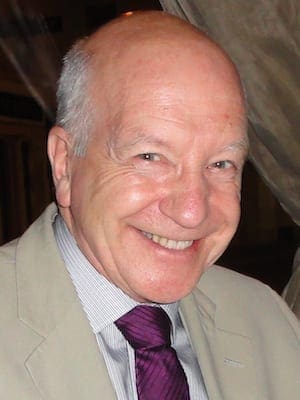The story of Jesus turning water into wine is one of the great surprise moments of John’s Gospel.
John’s word for those surprise moments is “sign.” The surprise is only the start.
John isn’t trying to pique our curiosity, like the clever novelist who ends each chapter with a mini cliffhanger.
Each of John’s signs is like a dig in the ribs of those not paying attention, or one of those pings that says you’ve got mail.
The fourth Gospel started with a hymn to the universe, or at least a hymn to the one who spoke the universe into being (John 1:1-14).
The word that calls all things into being is the light that lightens every human being and diffuses a glory that shines with brilliant persistence against all kinds of darkness.
The word has become human and is full of grace and truth; from that fullness those who receive him are filled with that fullness, and grace after grace after grace.
John isn’t one for understatement it seems, but the truth is (and that, too, is a Johannine way of speaking) to describe the grace and truth and fullness of what God is doing in Jesus needs more superlatives than are easily and grammatically fitted into a sentence.
What does it mean to talk about grace after grace after grace; blessing upon blessing upon blessing; gifts that keep on coming?
If only John could illustrate, give an example, a sign. This is offered in John 2:1-12.
So there is this wedding and, for reasons not hard to imagine, the wine runs out. Wine on tap at someone else’s expense isn’t likely to last long.
But a wineless celebration would be an embarrassment to the hosts and a diminishment of joy.
So, Mary tells Jesus, as if she expected him to run out to purchase some more. Or just maybe, because she had more than an inkling that Jesus would know what to do.
And sure enough, as problem solver extraordinaire, Jesus tells the servants to fill the huge water jars with water, take them in and serve the guests.
The clue to John’s story is in the weights and measures implied in the telling. Six stone water jars of the kind recovered by archaeologists, who confirm that they held 20 to 30 gallons. All told, 180 gallons of water, except it was now wine.
So, what is the coming of the word made flesh like? What is grace upon grace, the fullness from which we all receive?
These are great Advent questions, and John gives his illustration by telling what happened at a young couple’s wedding in Cana.
In celebration terms, Christ gives more than we can contain, more gallons of the wine of the Kingdom of God than we can drink, more blessing than we can think.
John knows his Jewish Scriptures and those places where there are promises of free flowing wine when the Messiah comes.
One of the funniest and happiest texts is from 2 Baruch, and I have a feeling John knew this text, which looks at what happens to vines when the Messiah comes.
“On one vine will be a thousand branches, one branch will produce a thousand clusters, and one cluster will produce a thousand grapes, and one grape will produce a cor [105 gallons].”
Grace upon grace upon grace, from grape upon grape upon grape!
This Advent, in a world needing to recover hope and hopefulness, love and loveableness, peace and peaceableness, joy and joyfulness, this story comes like an ancient blessing which looks at the world through the eyes of God in Christ, the Word made flesh, the grace of God come close.
There is no denying the darkness and the forces of evil and violence, hate and fear. It is precisely into this kind of world that Christians are called to bear witness to the one whose glory we have beheld, full of grace and truth.
Of his fullness, we have all received, grace after grace after grace.
So the light shines in us and through us, and the darkness cannot understand it, has not extinguished it and will never eclipse it. The good wine comes at the last, as does grace, in quantities we can never imagine.
 James Gordon is part-time minister of Montrose Baptist Church in Angus, Scotland, and the former principal of the Scottish Baptist College. He is on the advisory board of the Centre for Ministry Studies, University of Aberdeen, and is honorary lecturer in the School of Divinity, History and Philosophy. A version of this article first appeared on his blog, Living Wittily, and is used with permission.
James Gordon is part-time minister of Montrose Baptist Church in Angus, Scotland, and the former principal of the Scottish Baptist College. He is on the advisory board of the Centre for Ministry Studies, University of Aberdeen, and is honorary lecturer in the School of Divinity, History and Philosophy. A version of this article first appeared on his blog, Living Wittily, and is used with permission.
Baptist Center for Ethics will observe its 25th anniversary in 2016. If you benefit from the daily articles appearing on EthicsDaily.com, as well as our documentary films, video interviews and other moral resources, please consider making a donation today. Click here to donate in $10 increments. Click here to donate in $25 increments. Click here to donate in $50 increments.
Part-time minister of Montrose Baptist Church in Angus, Scotland, and the former principal of the Scottish Baptist College. He is on the advisory board of the Centre for Ministry Studies, University of Aberdeen, and is honorary lecturer in the School of Divinity, History and Philosophy.

